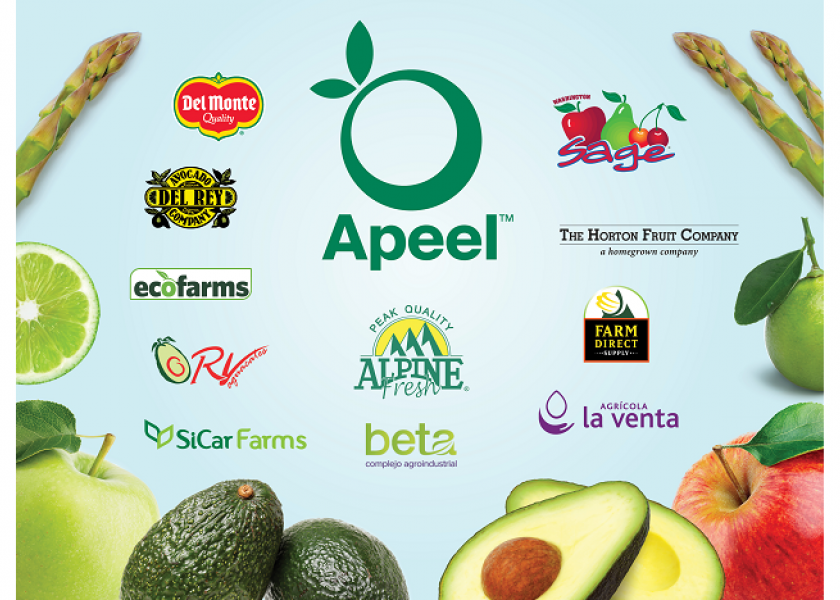
How did Apeel, a bizarre World Economic Forum (WEF) and Bill Gates-funded food coating that makes spoiling fruits and vegetables appear fresh, become approved for use on USDA Organic produce under the name Organipeel? According to the Organic Consumers Association (OGA), the Organic Materials Review Institute (OMRI) gave Apeel’s Organipeel the green light, “presumably based on citric acid being the active ingredient.” OGA explains that citric acid is a non-organic ingredient allowed in organic foods as long as it isn’t synthetic. Yet, OGA notes that citric acid is only 0.66 percent of the Organipeel formulation. So, what makes up the other 99.44 percent of Organipeel?
According to Apeel Sciences’ 45-page Generally Recognized as Safe (GRAS) submission to the FDA’s Office of Food Additive Safety on October 9, 2019, for Edipeel (the company has different names for Apeel, based on the application method), the main ingredient in the coating is monoacylglycerides extracted from grape seed. Apeel’s industrial extraction process uses several toxic solvents, leaving residues of mercury, cadmium, lead, arsenic, palladium, heptane, and ethyl acetate in the final product. Of concern, a November 8, 2021, European Food Safety Authority (EFSA) Review of monoacylglycerides (E 471) concluded that “the potential exposure to toxic elements resulting from the consumption of E 471 could be substantial.”
Additionally, a 2017 EFSA review warned of the potential presence of the carcinogen glycidol in monoacylglycerides. Significantly, in 2000, the World Health Organization’s (WHO) International Agency for Research on Cancer (IARC) recognized glycidol as “probably carcinogenic to humans.” Yet at the same time, the global elites insist that an ingredient (monoacylglycerides) linked to a carcinogen (glycidol) is safe enough to eat daily after being sprayed on organic and non-organic produce. Like the draconian COVID lockdowns and mask mandates, Apeel’s shady deal makes no sense.
Besides toxic solvents being present in varying levels of Apeel that the FDA apparently generally recognizes as safe, OGA points to evidence in a 2012 issue of Diabetes Care titled “Diabetes: Have We Got It All Wrong?: Insulin hypersecretion and food additives: cause of obesity and diabetes?” Specifically, the issue states the obvious, noting in the first sentence that diabetes is “prevalent and chronic,” explaining that food preservatives such as monoacylglycerides are environmental compounds that increase insulin secretion in the absence of high blood sugar.
Meanwhile, as the sinister ones promote the use of toxic pesticides on foods cultivated from genetically altered seeds, livestock injected with mRNA vaccines, and factories growing bugs for human consumption as if it is expected to save the planet, Apeel, valued in 2021 at $2 billion, absolutely doesn’t deserve a free pass to invade our food. Indeed, there should be no looking the other way for Apeel and its current products, including its antimicrobial pesticide product, Organipeel. Often listed among the best-funded synthetic biology companies, in 2018, Apeel’s founder and CEO, James Rogers, remarked that his company would soon use synbio instead of extracting its ingredients from agricultural byproducts (grape seed leftover from juice, wine, etc.). The following year, Rogers, a WEF Young Global Leader 2020, celebrated the accomplishments of Jennifer Doudna, the inventor of CRISPR-mediated genome editing and a DARPA partner working on “unwanted genome editing.”
The ability of Apeel to quietly slip in to extend the life of foods, with no proof of preserving any nutritional value, should remind Americans of the many reasons to eat organic, local, traditional, biodynamic, and chemical-free foods. Eating local also significantly reduces food waste. After all, most produce loses at least half of its nutritional value by the time it reaches the store. Yet, a 2018 CNBC headline, “This Bill Gates-backed start-up is fighting world hunger by making your avocados last longer,” implies Apeel has embarked on a well-intentioned humanitarian mission. From all accounts, Apeel Sciences joins a long list of companies, most of which are funded by those promoting the Great Reset, who want nothing more than to make billions at the expense of the health and well-being of others.
With at least 76 patents filed and dozens granted, Apeel fails to incorporate the importance of wholesome, nutritious, organic, locally produced natural foods into its business model. Instead, the company unquestionably joins Gates, the WEF, and the other elitists determined to railroad those trying to live wholesome lives that don’t align with their bleak and dismal future while steering consumers away from the small, local business they are on a mission to destroy.
Currently sprayed on avocados, English cucumbers, limes, mandarins, oranges, organic apples, lemons, grapefruit, and mangos, those concerned about the presence of Apeel can check here to see what retailers carry food coated with the product and here to check suppliers.

